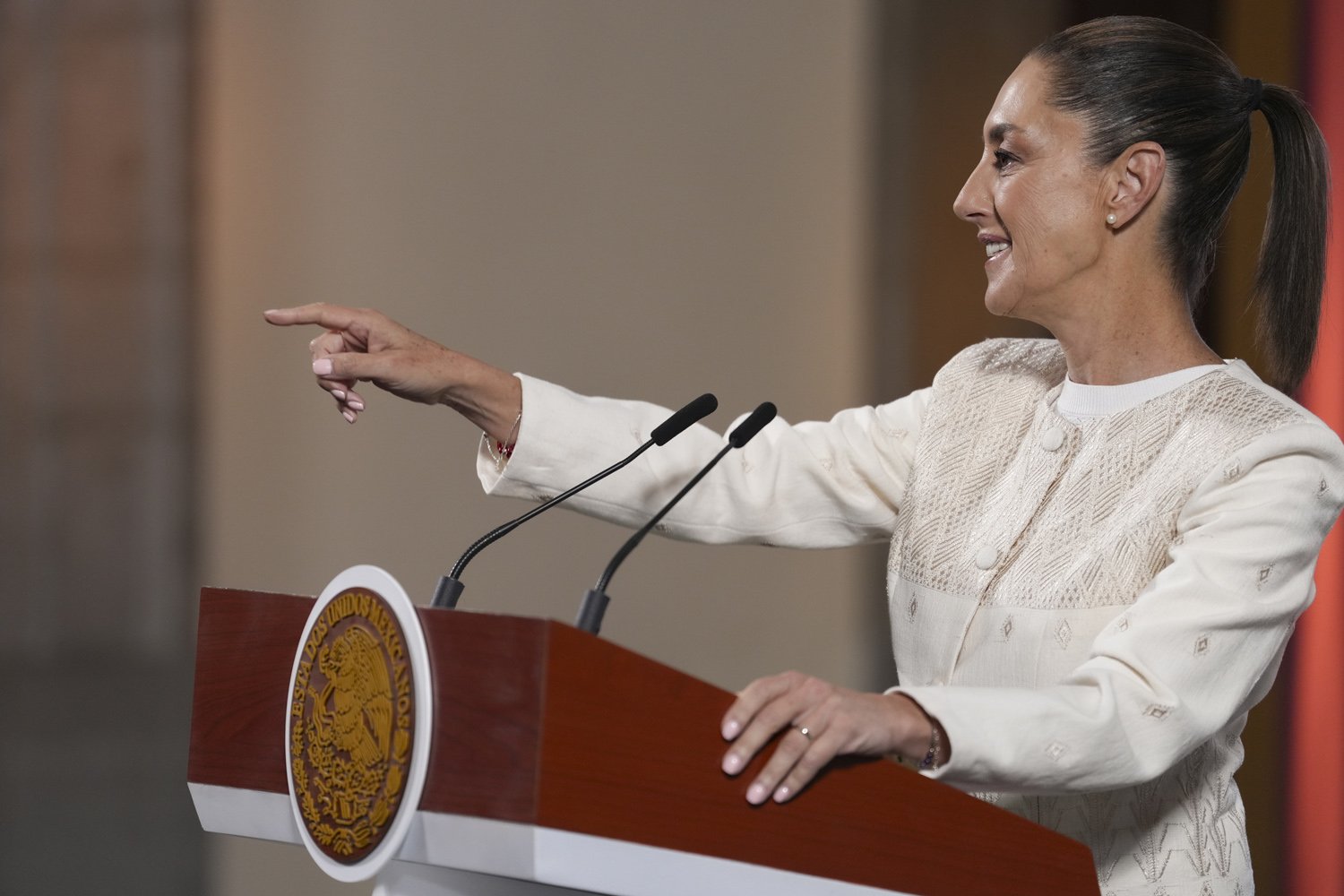Sheinbaum won’t recognize Ecuador
by David Agren.
Leaders the length of Latin Latin America – including the leftist presidents of Brazil and Chile – congratulated Daniel Noboa on winning re-election as president of Ecuador. Mexican President Claudia Sheinbaum refused to join them, even as the vote tally showed Noboa besting his rival Luisa González – though the latter alleged fraud without presenting proof.
On the day after the election, Sheinbaum drew on her predecessor’s playbook for addressing electoral outcomes not favouring her political movement’s preferred candidates. “We’re going to wait,” she said at her press conference the morning after. “Luisa, the candidate, doesn't recognize Noboa’s win. We’re going to wait.”
Former president Andrés Manuel López Obrador famously said the same – we’ll wait for the official outcome – after Joe Biden won the 2020 U.S. election over AMLO’s preferred candidate. AMLO eventually recognized Biden’s win – a necessity for a country so dependent on the US economy. Sheinbaum, however, has stated flatly that she won’t recognize Noboa under any circumstances.
“We don't have relations with Ecuador nor will we continue to have relations with Ecuador while Noboa is president, because he was responsible for the invasion of the Mexican embassy, of our sovereignty,” Sheinbaum said, referring to soldiers illegally entering the Mexican embassy in Quito. (More on that below). “His victory was highly doubtful,” she added.
Sheinbaum’s response showed the inconsistencies in Mexico’s “non-interventionist” foreign policy. Non-intervention has seemingly applied to election outcomes favouring her political movement’s preferred politicians: largely fellow travellers on the radical Latin American left. Critics couldn’t help but compare Sheinbaum recognizing Venezuela’s fraudulent election, but dismissing Ecuador’s vote.
AMLO spoke often of non-intervention. He famously warned Biden of Mexico’s “non-intervention” foreign policy after becoming one of the last world leaders congratulating the 2020 US election winner. The concept dates back to the last century, when the PRI pushed a foreign policy of non-interventionism in the affairs of other countries – but expected the same of others.
The historian Harim B Gutiérrez said previous Mexican governments “maintained legitimacy at home while making big concessions to the United States” by staking out independent positions such as not breaking relations with Cuba after the 1959 revolution.
But AMLO meddled in countries across the hemisphere. He sent a military aircraft to fetch Evo Morales and offered him asylum after the latter was accused of rigging his re-election. He caused mischief in Peru by backing ousted president Pedro Castillo – calling him the victim of a corrupt and racist oligarchy – after he was impeached.
Mexico also granted asylum to former Ecuador vice president Jorge Glas, who served under leftist president Rafael Correa and was charged with embezzelment. In August 2024, Noboa sent soldiers into the Mexican embassy in Quito to grab Glas – a reckless move drawing international condemnation. Mexico subsequently severed diplomatic relations.
The imbroglio in Ecuador unfolded as drug cartel violence convulsed the country – with gunmen notoriously storming a television studio during a live broadcast. Noboa declared war on drug cartels the following day.
Noboa, the 37-year-old scion of a banana fortune, ran on a “mano dura” agenda of cracking down on criminal activity. He beat a candidate from Correa’s political movement – commonly called “correísmo” – which analysts describe a popular a polarizing with reputation for political persecution.
His win in 2023 came amid bloodshed. Fernando Villavicencio, an investigative journalist-turned-presidential candidate – who decried the incursion of Mexican drug cartels into Ecuador’s politics – was assassinated during the campaign. He had received threats from a group linked to the Sinaloa Cartel, though another group tied to the Jalisco New Generation Cartel claimed credit for the killing.
AMLO took issue with the accusations of Mexican drug cartel involvement. He expressed more displeasure with the accusatory tone than the actual assassination, telling reporters, “I would not dare to advance anything about the motives because there are no elements to do so. You have to act very responsibly, not casually blame anyone and wait for the investigations”
He continued: “What catches my attention is that immediately they started spreading blame in a very sensational and unserious way, very irresponsibly, in media outlets … which in the majority of these cases are manipulation, not media outlets.”
AMLO’s interest in Ecuador seemingly stems from the seeming closeness of his “Fourth Transformation” (4T) political movement and the correístas. Correa, who lives as a fugitive in Belgium after being convicted in Ecuador on corruption charges, regularly visits Mexico.
He gave a talk in March 2024 at the National Autonomous University of Mexico (UNAM) – hosted by 4T academic John Ackerman – on “recovering Latin American thought.” Correa insisted, "We must continue fighting to recover Latin American thinking, to seek our own solutions and not passively accept what comes to us from the North. Rest assured, even if they have good intentions, it responds to another reality, and they don't have good intentions."
Correa also appeared at Los Pinos – previously the presidential palace, but turned into a cultural center after AMLO’s inauguration – where he was part of a panel speaking on, “The Role of the Media in Latin America.”
Other panelists included Jesús Ramírez Cuevas, then AMLO’s spokesman, but now coordinator of advisors to Sheinbaum. Anti-graft NGO Mexicans Against Corruption and Impunity published a 2023 investigation showing a Correa collaborator, Daniel Tovar Herrera, worked under Ramírez as coordinator of digital content – effectively running social networks for the federal government obsessed with non-traditional communications channels – and later with the Mexico City government.
For his part, Noboa has been clumsy in his dealings with Mexico. He slapped 27-per-cent tariffs on Mexican exports – only to have Sheinbaum shrug it off. But the AMLO and Sheinbaum administrations’ investment in Ecuador appears curious given – especially considering how little their interest has been in the mayhem caused by Mexican cartels in the country.


